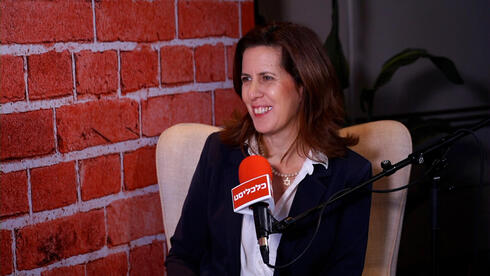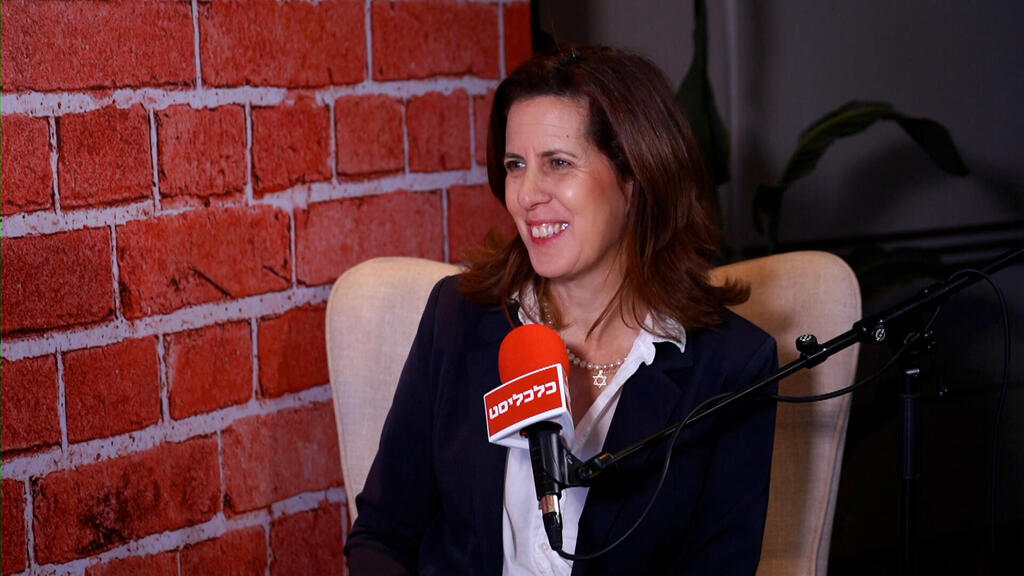
“After years of learning to live in uncertainty, 2025 appears to mark a fresh start”
Adi Yoffe, trendologist and business futurist, was speaking in a podcast interview as part of Calcalist's 2025 Forecasts conference.
"The year 2025 appears to mark a fresh start. We are in the midst of a new beginning, not only in Israel but in many other significant places around the world. Democracies and economies are being reorganized, and we see a growing need to find new ways to operate in a world where uncertainty is the only constant." This is what trendologist and business futurist Adi Yoffe said in a podcast interview as part of Calcalist's 2025 Forecasts Conference in collaboration with Bank Hapoalim and the Phoenix Group.
"Our world has long stopped functioning according to the patterns we once knew," she explained, referencing the series of crises and changes that have shaped recent years. "The COVID-19 pandemic in March 2020 broke the old order, just as the October 7 war did," she noted. According to Yoffe, the relentless changes—be it pandemics, wars, or rapid technological advancements like artificial intelligence—force us to reexamine the paradigms we once relied upon.
"The biggest rupture is the loss of trust," Yoffe explained. "We grew up believing that science and the state would protect us. When the coronavirus arrived, we realized this wasn’t the case—science progressed slowly, and governments entered lockdowns amidst confusion and uncertainty. This deep fracture has left people grappling with existential questions: who protects us in such a world?"
One of the most transformative forces in this new reality is artificial intelligence. "It’s not just a functional tool that speeds up processes," Yoffe said. "AI changes how we think, learn, and act. This technology continuously feeds us, and we, in turn, feed it. For many young people, AI has become their 'best friend.'" She highlighted how AI is reshaping our perception of knowledge and truth. "We were raised to value personal knowledge, to learn and gain experience. Now comes a technology that undermines all of that. Who needs individual expertise when there’s AI that can 'think like Adi' or draw like Leonardo da Vinci?"
Yoffe described the current period as marked by deep pessimism. "People are searching for stability and familiarity," she observed. "This is a natural response to a chaotic world. We’re seeing a reorganization that reflects a longing to return to the 'simplicity' of the past—whether it’s nostalgic political leadership like Trump or big brands offering clear, reassuring messages." She noted that 2024 was a year defined by nostalgia. "Disney, for example, returned to its classic stories. People want to cling to the past and feel like things are under control. It’s not just about familiarity—it’s about seeking a sense of security in a time when everything feels unstable."
However, Yoffe cautioned against the impulse to dwell on the past. "Despite the nostalgia, we must remember that reality will never return to what it once was. We live in a new world where technological progress, social evolution, and economic shifts will continue to rewrite the rules."
Concluding the conversation, Yoffe expressed cautious optimism about the future. "Our challenge is not merely to survive in this disrupted world but to find opportunities within it and create a new reality that aligns with the changing conditions," she said.














